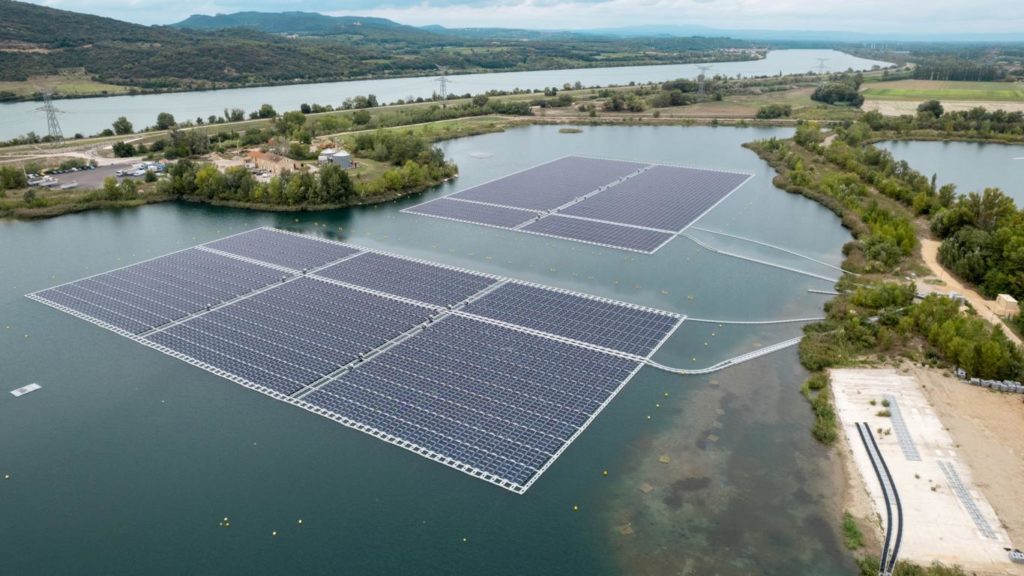 The consortium of SERENDI-PV is currently working on the topic of floating PV.
The consortium of SERENDI-PV is currently working on the topic of floating PV.
Simulation and monitoring data analytics tools for floating PV have been developed.
The project partners aim to improve their energy simulation model and data analytics for floating solar PV modules.
The modelling steps will focus on improvement of temperature effects and mismatch in DC section due to wind (triggering higher waves). We will compare the model performance with data from floating PV systems. FPV-specific temperature effects will be considered in the module modelling and these will be implemented in a model for on-site quantification of soiling losses for digital twinning.
The novel simulation tools will allow to carefully take into account the effects of solar irradiance, air temperature, wind speed and water surface dynamics. This will comprise the inclusion of mismatching simulation due to the misalignment of the PV modules with water waves, the improvement of already existing models, better simulation of PV cell temperature profiles, and the corresponding validation vs field data from floating PV plants.
Several project partners of SERENDI-PV aim to improve their energy simulation model for floating PV modules. Different modelling approaches are being developed and tested.
We will compare the model performance with other software packages and with data from PV systems with floating modules. The work on the improvement of the already existing models, as well as on the validation of the models, will be carried out vs real data.
What will be offered?
Several tools are currently under development for the simulation and monitoring data analytics of floating PV systems. A beta version of these tools will be available from this collaborative platform.
How to collaborate?
-
-
- We are actively looking for the monitored operational data of floating PV systems of different typologies and installed all over the world, in order to further develop and validate our simulation models. We are also looking for reliable albedo data in order to perform these steps. If you possess such data, we will welcome collaboration. If your data are of interest for the research group involved in the floating PV modelling, you could receive in-depth analyses for free that will contribute to a better understanding of the performance of your floating PV assets.
- If you are currently modelling floating PV installations, and if you are interested in sharing good simulation practices, and/or simulation codes, we encourage you to use our collaborative tools for development and get involved in floating PV modelling with the rest of the team. Interesting comparisons between different approaches could teach important lessons. The results of these data analyses, as well as the input data, will not be publicly released in order to preserve the critical commercial character of most of such data that will be provided by their owners, and to prevent their competitors from gaining access to the knowledge of the actual performance of their PV plants.
-


